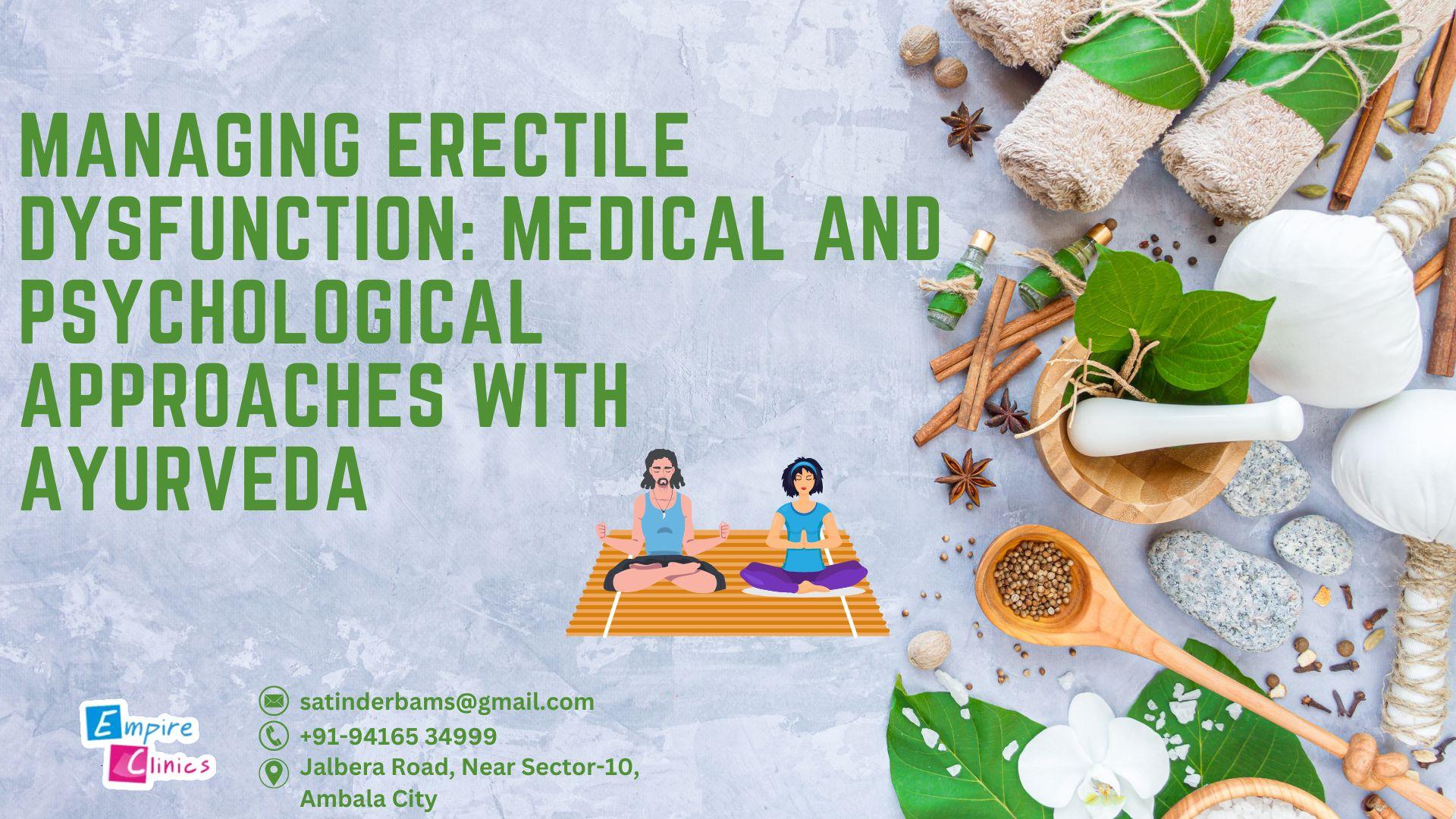Erectile dysfunction (ED) is a condition that can significantly impact a man's quality of life and relationships. While medical and psychological approaches are commonly used to manage ED, Ayurveda, the traditional Indian system of medicine, also offers valuable insights and treatments for this condition. Ayurvedic remedies aim to restore balance to the body and mind, addressing the underlying causes of erectile dysfunction. Let's explore how Ayurveda can be integrated into the management of ED.
Medical and Psychological Approaches with Ayurveda
1.Dietary Modifications: According to Ayurveda, imbalances in the doshas (energetic forces) can contribute to ED. Making dietary modifications can help restore balance and improve sexual health. Include foods that enhance sexual vigor and vitality, such as almonds, asparagus, garlic, ginger, ginseng, and saffron. Avoid excessive consumption of processed foods, refined sugars, and saturated fats as they can negatively affect blood circulation and overall health.
2. Herbal Remedies: Ayurveda utilizes a wide range of herbs and natural remedies to address various health conditions, including erectile dysfunction. Some commonly used herbs for ED include Ashwagandha, Shilajit , Safed Musli, ginkgo biloba, and Tribulus Terrestris. These herbs are believed to enhance sexual function, improve blood flow to the genitals, and boost overall vitality. However, it is important to consult an Ayurvedic practitioner or healthcare professional for the correct dosage and guidance.
3. Yoga and Meditation: Ayurveda emphasizes the connection between the mind and body. Practicing yoga and meditation can help reduce stress, anxiety, and other psychological factors that may contribute to ED. Certain yoga asanas (postures) and pranayama (breathing exercises) are specifically beneficial for improving blood circulation, strengthening pelvic muscles, and promoting relaxation. Regular practice of these techniques can enhance overall sexual health.
4. Ayurvedic Massage and Therapies: Ayurvedic massages and therapies, such as Abhyanga (full body massage) and Shirodhara (pouring warm oil on the forehead), can help relax the mind, improve blood circulation, and reduce stress levels. These treatments aim to balance the doshas and enhance overall well-being. They can be beneficial for individuals experiencing Erectile dysfunction due to stress, fatigue, or nervous system imbalances.
5. Panchakarma: Panchakarma is a comprehensive detoxification and rejuvenation therapy in Ayurveda. It involves a series of therapies aimed at eliminating toxins from the body and restoring balance. Panchakarma treatments can help address the underlying causes of ED by promoting overall health, improving digestion, and enhancing vitality.
6. Lifestyle and Daily Routine: Ayurveda emphasizes the importance of a balanced lifestyle and daily routine for maintaining optimal health. Regular exercise, adequate sleep, and stress management are essential for managing ED. Ayurvedic principles also recommend avoiding excessive alcohol consumption, smoking, and substance abuse, as they can negatively affect sexual health.
It is important to note that Ayurvedic treatments for erectile dysfunction should be tailored to individual needs and administered under the guidance of a qualified Ayurvedic practitioner. They can assess the individual's dosha imbalance, overall health, and specific symptoms to provide personalized recommendations.
In conclusion, Ayurveda offers a holistic approach to managing erectile dysfunction by addressing both the physical and psychological aspects of the condition. Dietary modifications, herbal remedies, yoga, meditation, Ayurvedic massages, Panchakarma, and a balanced lifestyle can all contribute to improving sexual health. Integrating Ayurveda with medical and psychological approaches may provide a comprehensive solution for individuals seeking effective management of erectile dysfunction. However, it is important to consult with healthcare professionals and Ayurvedic practitioners to ensure safe and appropriate treatment.







